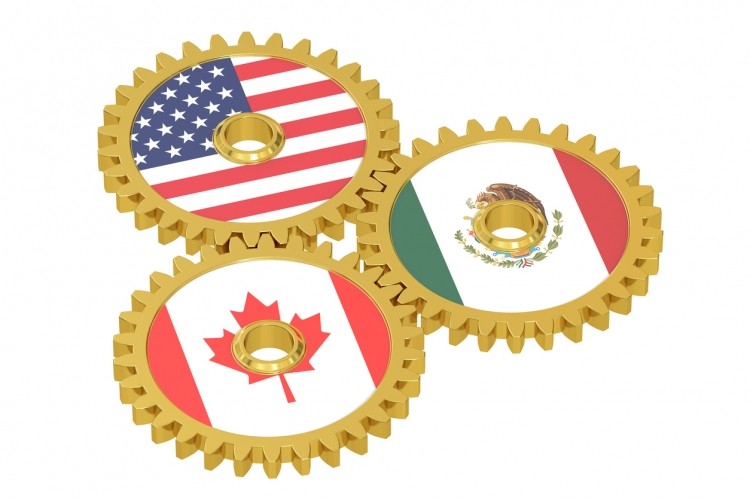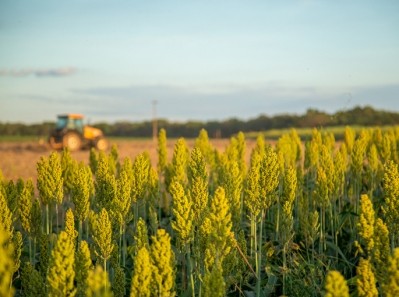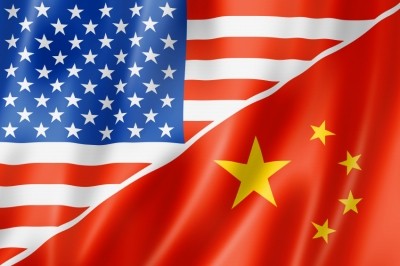US grain and feed organizations talk priorities for trade agreements

The National Grain and Feed Association (NGFA) and the North American Export Grain Association (NAEGA) shared their suggestions for trade priorities in a joint statement last week. The suggestions came in response to a request for comments from the Office of the US Trade Representative (USTR) and the US Department of Commerce (DOC).
The statement comes before the start of talks on the potential renegotiation of the North American Free Trade Agreement (NAFTA) and after the US withdrew from the Trans-Pacific Partnership trade agreement.
“The benefits of US agricultural trade are not limited to farmers, ranchers, grain elevators, feed manufacturers, feed ingredient suppliers, grain and food processors, dairy operators and the many other agricultural businesses whose livelihoods depend extensively on access to foreign markets,” the organizations said. “Rather, the economic multipliers associated with the US food and agricultural sector accrue to the broader US economy, particularly in terms of job creation and economic growth.”
Both groups added that they were “eager” to work with President Trump and his administration to “examine these key areas, and to develop specific strategies to preserve, improve and build upon existing and new trade relationships,” they said.
Free trade agreements and trade priorities
The trade of grain and feed with the US’s free trade agreement counterparts has been “vibrant,” the organizations said. The agreements have eliminated most grain and feed tariff barriers and reduced some non-tariff obstacles that once limited US access to markets.
While many feed and agricultural products are considered trade surpluses, there continue to be benefits in two-way trade, both groups said. “The balance of trade surplus for five of the primary US feed and grain commodities (corn, distiller’s dried grains with solubles (DDGS), soybean meal, soybeans and wheat) increased from 22.5m metric tons with its free trade agreement counterparts in the year prior to the agreements entering into force to 53.3m metric ton in 2016,” they added.
The agreements also have allowed for more specialization, the development of niche markets and created opportunities for value-added products like meat, dairy and biofuels, they said.
However, there are improvements that could be made in future trade agreements, the organizations said. “In the time since the free trade agreements took effect, economies, markets, technologies and supply chains have evolved,” they added.
The focuses for upcoming efforts should be on addressing the non-tariff barriers that “distort and slow trade flows,” they said. “We urge US trade negotiators to work with our trading partners to make existing agreements more effective in preventing technical, sanitary and phytosanitary (SPS) barriers to trade, encouraging higher levels of regulatory cooperation, transparency and professionalism, and promoting the convergence of standards and rules to level the playing field and ensure against unjustified, unscientific and discriminatory regulatory initiatives,” they added.
Three major factors to address in efforts to reduce non-tariff barriers include import actions, science and risk analysis and transparency, the organizations said.
Import checks can present barriers including expensive delays and potential re-export, they said. The goods involved also may be inspected and rejected without “apparent scientific justification.”
Provisions are needed to require rapid completion of sound risk assessments, they said. Several sanitary- and phytosanitary-based import bans or restrictions do not adhere to regional and international standards and may not be science-based.
Additionally, it can be difficult to understand the basis for measures that limit movement of feed and grain products on sanitary and phytosanitary or technical barriers to trade grounds, the organizations said. All requirements for trade should be disclosed to governments and commercial parties before they go into effect.
“Trade would benefit from clear and transparent timelines for disclosure and resolution of adverse import checks that prevent or delay import shipments,” they said. “Further, regulatory authorities should be encouraged to adhere to and abide by transparent and predictable regulatory timelines with adequate opportunity for comment and critique of new or altered regulatory measures.”
The NGFA and NAEGA also called for the Trump administration to start work on new trade discussions focused on countries in the Asia-Pacific region, and to work with the European Union to address “unscientifically based and unjustified barriers” that have been established by the EU to limit the amount of US feed, grain and value-added products entering that market.
“There is a sense of urgency in initiating trade negations with these key Asia-Pacific markets given the administration’s decision to withdraw from the Trans-Pacific Partnership trade agreement, which has created a void that foreign export competitors are aggressively exploiting to the detriment of US agricultural exports and our nation’s economy,” the organizations said.
Comment sought
The USTR and DOC were interested in gathering information on trade agreements and related areas including current free trade agreements and bilateral investment treaties where the US is a party, and the performance of World Trade Organization agreements with countries where the US does not have a separate free trade agreement, the departments said.
Other areas of interest were how US trade preference programs have been preforming and if there have been any harm or benefits noted from particular agreements, they said.
The overall project is part of a comprehensive performance review of “all bilateral, plurilateral and multilateral trade agreements and investment agreements to which the United States is a party and all trade relations with countries governed by the rules of the World Trade Organization (WTO) with which the United States does not have free trade agreements but with which the United States runs significant trade deficits in goods,” the departments said.












